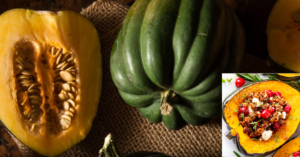Blood in stool, also known as rectal bleeding, can be alarming and often raises concerns about underlying health issues. This comprehensive guide delves into the causes, symptoms, diagnostic procedures, treatments, and preventive measures related to blood in stool. It also answers common questions to provide clarity on this critical health topic.
Table of Contents
Understanding Blood in Stool
What Is Blood in Stool?
Blood in stool refers to any visible or microscopic traces of blood that appear in bowel movements. It may manifest as:
Bright red blood: The symptoms are typically fresh and are usually related to bleeding in the lower digestive tract, such as hemorrhoids or anal fissures.
Dark, tarry stools (melena): Often indicate older blood from the upper gastrointestinal (GI) tract, suggesting conditions like ulcers or significant internal bleeding.
Recognizing these differences is crucial in understanding the potential cause.
Common Causes of Blood in Stool
1. Hemorrhoids
A hemorrhoid is a swelling of the blood vessels in the rectal or anal regions of the body. Common causes include:
- Chronic constipation.
- Straining during bowel movements.
- Pregnancy, which increases pressure on rectal veins.
Symptoms include itching, pain, and bright red blood on toilet paper or the stool’s surface.
2. Anal Fissures
Anal fissures are small tears in the anal lining, usually resulting from passing hard stools. These can cause sharp pain during bowel movements, followed by minor bleeding.
3. Diverticulosis

In this condition, the colon wall develops small pouches (diverticula). Although they are often harmless, diverticula can rupture or become inflamed, leading to rectal bleeding.
Digestive System Disorders Leading to Blood in Stool
1. Inflammatory Bowel Disease (IBD)
The term inflammatory bowel disease refers to conditions such as Crohn’s disease and ulcerative colitis, which both cause chronic inflammation in the digestive tract. Symptoms may include:
- Blood and mucus in stools.
- Diarrhea and abdominal pain.
- Weight loss and fatigue.
2. Gastrointestinal (GI) Ulcers and Bleeding
Stomach ulcers caused by H. pylori bacteria or prolonged NSAID use can lead to bleeding. This often presents as dark, tarry stools due to blood digestion during its passage through the GI tract.
Serious Conditions to Watch For
1. Colorectal Cancer
Blood in stool is a potential symptom of colorectal cancer, especially if accompanied by:
- Unexplained weight loss.
- Persistent changes in bowel habits.
- Fatigue or anemia.
2. Colon Polyps
Growths on the lining of the colon are called polyps. While often benign, larger polyps may bleed or develop into cancer if untreated.

Dietary and Lifestyle Factors
Foods That Mimic Blood in Stool : Certain foods, such as beets, red food dye, or iron supplements, can mimic the appearance of blood in stool. However, they are harmless and resolve without medical intervention.
Alcohol and Smoking : Both alcohol and smoking irritate the digestive lining, increasing the likelihood of ulcers, acid reflux, and subsequent bleeding.
When to See a Doctor
Seek medical attention if you experience:
- Heavy or persistent bleeding.
- Dizziness, fatigue, or signs of anemia.
- Accompanying symptoms like severe pain, fever, or weight loss.
Diagnostic Procedures for Blood in Stool
1. Colonoscopy
A colonoscopy involves inserting a flexible tube with a camera into the colon to identify and address bleeding sources.
2. Fecal Occult Blood Test (FOBT)
This non-invasive test detects hidden blood in stool, often used for early screening of colorectal cancer.
3. Imaging Tests
Images of the digestive tract can be obtained using CT scans or MRIs, which can be used to diagnose conditions like diverticulitis or tumors.
Treatment Options
1. Medical Treatments
- For hemorrhoids: Over-the-counter creams, sitz baths, or, in severe cases, surgical interventions.
- For IBD or infections: Anti-inflammatory drugs, antibiotics, or biologics tailored to the condition.
2. Home Remedies and Lifestyle Changes
- Increase dietary fiber: Helps soften stools and reduces strain.
- Stay hydrated: Prevents constipation and supports digestive health.
Preventing Blood in Stool
1. Eat a Balanced Diet
Include plenty of fruits, vegetables, and whole grains to support bowel health.

2. Regular Exercise
In addition to enhancing digestion, physical activity reduces constipation risks.
3. Screening and Regular Checkups
Routine colonoscopies, especially after age 50, help detect issues early.
Conclusion
Blood in stool can range from benign causes, like hemorrhoids, to severe conditions, such as colorectal cancer. Timely medical evaluation is critical for proper diagnosis and treatment. Adopting a healthy lifestyle, staying informed, and undergoing regular checkups can significantly reduce the risk of serious complications.
FAQ’s
Common causes include hemorrhoids, polyps, or minor tears.
While stress doesn’t directly cause bleeding, it may worsen conditions like IBD.
It typically points to bleeding in the lower digestive tract, such as from hemorrhoids.
Avoid suspected foods for a few days to check if the color resolves.
Yes, hemorrhoids are common during pregnancy, but always consult a doctor.
Yes, NSAIDs or anticoagulants can lead to GI bleeding.
Increasing fiber, using sitz baths, and avoiding straining during bowel movements are effective.
If bleeding persists, is heavy, or accompanies symptoms like fever or pain.
It signals upper GI tract bleeding and requires immediate medical attention.
Indirectly, yes. Dehydration can lead to hard stools, increasing the risk of anal fissures.

10 Proven Benefits of Bananas for Health and Well-being
Bananas are known for their natural sweetness, ease of peeling and rich nutrition. This makes them one of the most commonly consumed fruits in the world. Though bananas originated in Southeast Asia, they are now

Disease X: The Next Pandemic?
Emerging infectious diseases pose one of the greatest threats to human health and global stability. One of them, “Disease X” has intrigued scientists and WHO, as it represents the potential for an unknown disease to

The Remarkable Benefits of Eating Acorn Squash in Winter
Acorn squash has all the qualities that make it special. Winter calls for warmth, comfort, and nutrition, and acorn squash provides all of these. This vegetable is not just delicious but also has a lot

Omega-3 Fatty Acids
Omega-3 fatty acids play a very important role in the nutrients needed to maintain overall health. As people are getting to know about it, its popularity is increasing day-by-day. These fats play a very important



